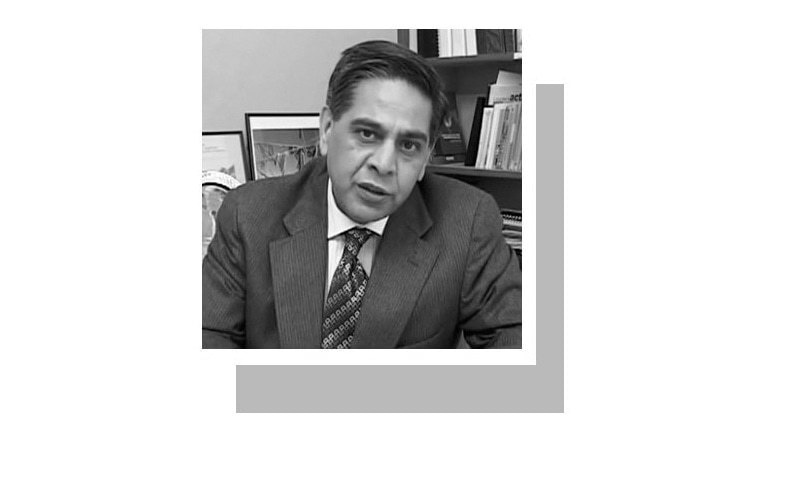PAKISTAN depends heavily on its neighbours for most of its surface water. Many of our rivers originate in other countries; yet relations with most water neighbours are estranged. And we have yet to develop a coherent narrative and consistent policy to protect our long-term water interests. Instead of laying a foundation for sound water relations, we are allowing our water interests to become subservient to temperamental political relations.
It is imperative for Pakistan to have mechanisms in place to discuss the development of neighbouring countries’ water infrastructure, with or without formal treaties. We need regular, ongoing discussions with our neighbours on infrastructural development, surface water flows and diversions. This includes Afghanistan that is planning feasibility studies of about a dozen dams; China for developments in Tibet where the Indus originates; and India that is home to the upper reaches of Indus and its numerous tributaries. An exchange of information and increased cooperation on water issues, therefore, needs to become a standing item in our bilateral agendas with our neighbours as well as with other development partners (Australia, the EU, UK and US).
It is for Pakistan to initiate water negotiations with all our water neighbours in order to respond to the growing population, projected economic growth, receding glaciers and water flows — now made uncertain by climate change. For a water-secure Pakistan, domestic water-sector reforms must be complimented with a new regional diplomacy.
A fresh and simple approach is needed for a policy that is based on three basic principles. First, have a clear policy for water security. Since water is the lifeline of our economy and ecology, ensure it is at no point hostage to volatile political interests. In fact, we need to use water relations to build and improve political and economic relations. Our present policy is lopsided. We ignore water relations with Iran, thinking that water quantities shared with it are too small or seasonal, but forget that Iran and Afghanistan have been in discussions over the Helmand River for almost 100 years.
Pakistan must secure its interests through regional diplomacy.
Likewise, as an upper riparian, China has a strong bearing in future water flows downstream in the Indus and Brahmaputra. In fact, given evolving data-sharing mechanisms between India and China on Brahmaputra, China may assume a unique position in shaping, if not brokering, Pakistan-India water relations. But water is not a formal agenda item between China and Pakistan, notwithstanding some preliminary explorations of the Indus Cascade. This project in the upper reaches of Gilgit-Baltistan is potentially larger and more important than CPEC.
With India, we have reduced water relations to only conflicting interpretations of the Indus Waters Treaty, compromising our interests on many old and emerging issues not directly covered in the treaty: transboundary water pollution loads; information on aquifer movement; climate-induced cloudbursts and cross-border flooding; joint management of early warning systems; and changing patterns of monsoon and precipitation that influence regular and seasonal flows. This growing list offers opportunities for enhanced bilateral collaboration.
Second, invest in research and development. Articulating policies based on perceived instead of evidence-based interests has made negotiating positions zero-sum. Our interest lies in equitable benefit sharing, which requires research and policy engagement. We recently damaged our case in the international court primarily because we cited little scientific information to back our claims. As we move to implement our National Water Policy, experts and thought leaders must be brought together to undertake collaborative research and analysis. Scores of experiences of transboundary negotiations and agreements need to be analysed for their relevance to our complex contexts.
Third, find friends and takers for our policy. Though detrimental to our interests, and adding to mistrust and information gaps, Pakistan has unnecessarily shied from engagement. Proactive regional engagement to win friends will help us develop the social capital necessary for exercising soft power. We can still initiate the process by picking some of the threads from the Friends of Democratic Pakistan report, shelved almost a decade ago. It is time to assess how best to re-engage those nations, the World Bank and institutions that have traditionally taken a keen interest in regional water diplomacy, investments and institution-building.
In all, we need to focus on developing a new generation of leadership in water by investing in a cadre of decision makers from across the provinces, sectors and disciplines. They need to be trained and capacitated for reimagining and re-envisioning regional water diplomacy.
The writer is CEO of LEAD Pakistan, an Islamabad-based think tank specialising in environment and development issues.

Comments
Post a Comment